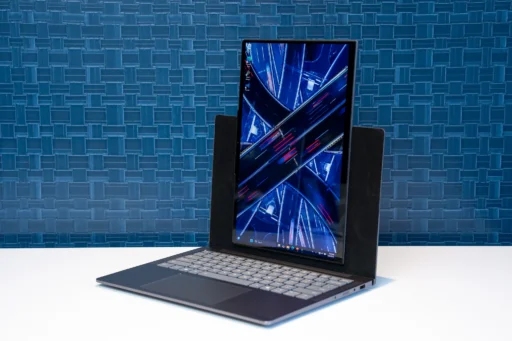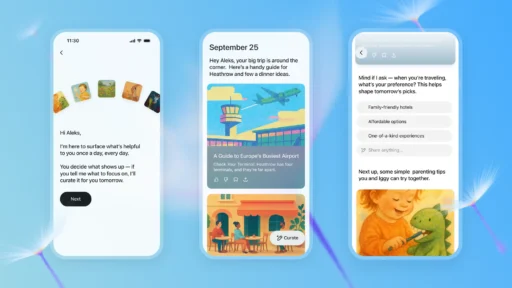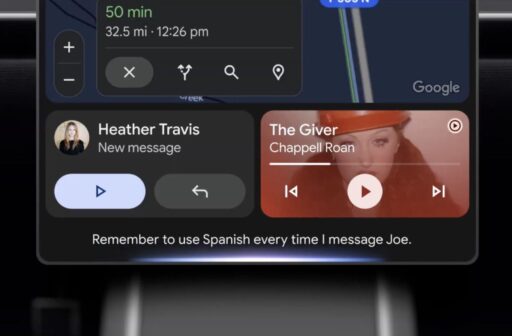Google’s newest Pixel phones have arrived, and what stands out about them is not just the faster processors or the improved cameras in the traditional sense. This time, Google is making a bigger point about where smartphones are heading. Instead of focusing on hardware alone, it is putting Artificial Intelligence (AI) at the very center of the experience. With its custom-built Tensor processor paired with the Gemini AI model, Google is showing that the next leap in smartphones comes from intelligent software working right on the device.
Key Takeaways
- AI-first approach: The Pixel’s biggest advantage comes from AI-powered software, not just hardware specifications.
- Custom hardware: The Google Tensor G-series chip is designed specifically to handle advanced AI tasks efficiently on the phone itself.
- Practical features: Tools such as Magic Editor for photos and Audio Magic Eraser for videos help solve everyday user problems.
- On-device intelligence: Many of these AI features run directly on the phone, which makes them faster and more private.
Google’s approach with the Pixel is now very clear. While other brands tend to highlight numbers like processor speeds or memory size, Google seems to be betting that people will care more about what their phone can actually do for them. At the core of this strategy is the Tensor chip. Unlike standard processors, Tensor was designed from the ground up to handle machine learning. That means the Pixel can run complex AI processes more quickly and without draining as much power.
This hardware works closely with Gemini AI. A lightweight version called Gemini Nano can run entirely on the device. That is important for two reasons: speed and privacy. Features like generating text summaries in the Recorder app or suggesting smart replies in Gboard happen almost instantly since the data never has to leave the phone. At the same time, personal information remains local instead of being sent to a cloud server.
The combination of hardware and software comes through most clearly in real-world features. The camera app, for instance, includes Best Take, which helps you fix group photos where someone might be blinking or looking away. It captures several frames and then lets you pick the best expression for each person before combining them into one final shot. Magic Editor in Google Photos builds on this by using generative AI to let you move or resize subjects or even replace the background of a photo with something else entirely.
The usefulness does not stop at photos. With Audio Magic Eraser, background sounds in videos such as wind, traffic, or chatter can be reduced so the main audio is clearer. And during phone calls, the Call Screen feature uses AI to interact with unknown numbers and provide a live transcript so you can decide whether the call is worth answering. These tools do not feel like gimmicks. They solve real, everyday annoyances that most people encounter regularly.
Altogether, the latest Pixels make a strong case that the definition of a smartphone is changing. Instead of competing only on technical specifications, Google is leaning on AI as the main source of innovation. Whether or not every user adopts these features right away, it seems hard to ignore the direction this is pointing to for the future of the entire industry.
Frequently Asked Questions (FAQs)
Q: What is the Google Tensor chip?
A: The Google Tensor is a custom processor designed by Google specifically for its Pixel phones. Its main purpose is to run Google’s AI and machine learning models efficiently, enabling features that are fast, smart, and secure.
Q: Do Pixel AI features work without an internet connection?
A: Many of them do. Because Google’s Gemini Nano AI model runs directly on the Tensor chip, features like Smart Reply in Gboard and parts of the Recorder app work offline. However, more complex features like Magic Editor require a connection to the cloud.
Q: How is Google’s AI different from Apple’s or Samsung’s?
A: While all major brands use AI, Google’s approach is defined by its deep integration of its own custom hardware (Tensor), operating system (Android), and AI models (Gemini). This allows for a more unified and powerful set of features built directly into the core phone experience.
Q: Are these AI features free to use on Pixel phones?
A: Yes, all the AI features built into the Pixel phone, such as Best Take, Audio Magic Eraser, and Call Screen, are included with the purchase of the device and do not require a separate subscription.




